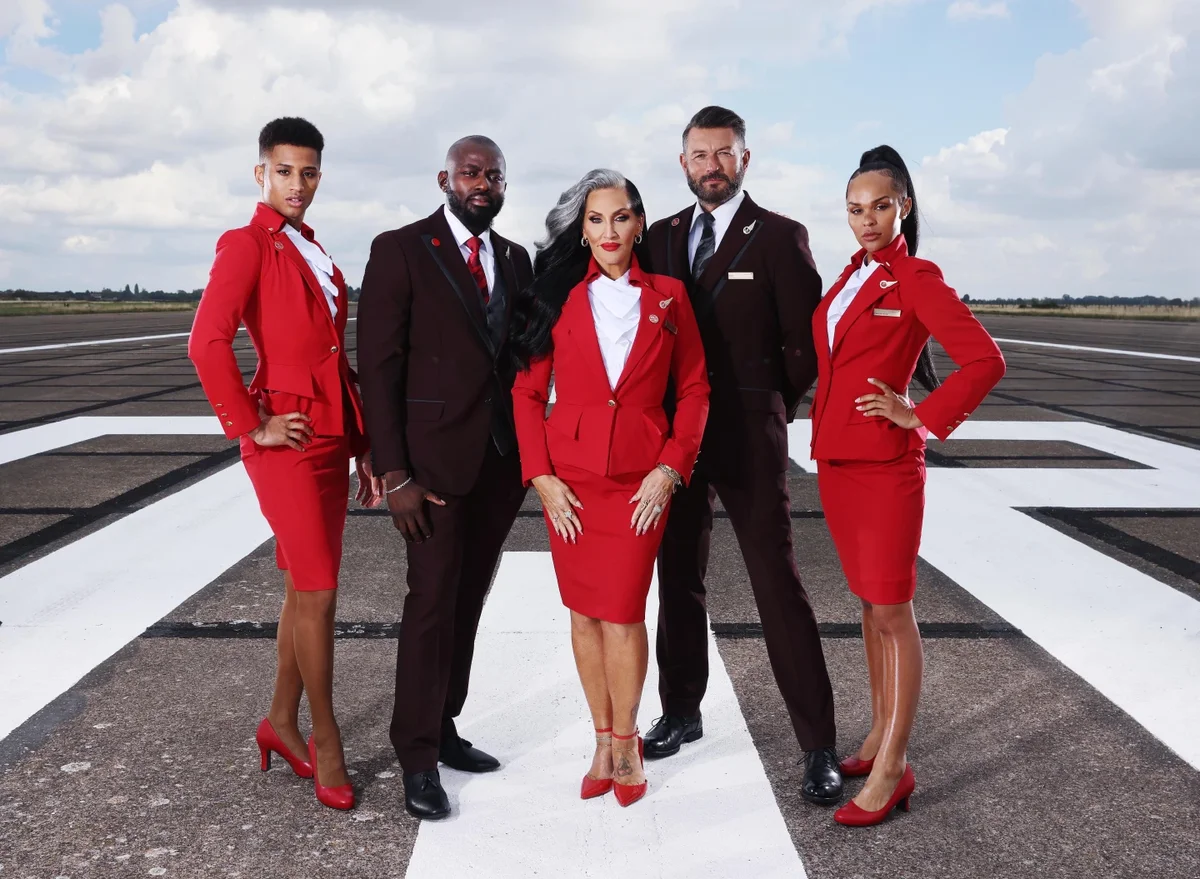
Virgin Atlantic has seen a 100 per cent rise in crew applications following its decision to launch gender-free uniform options, the airline’s CEO has said.
Speaking on the airline’s inaugural flight from London Heathrow to Tampa, Florida, CEO Shai Weiss Weiss told The Telegraph: “We saw a 100 per cent uplift in applicants following the campaign, ‘See the world differently’.”
The campaign, launched on 28 September, showed male crew members walking runways in skirts and female and nonbinary staff posing in comfortable trouser suits.
Mr Weiss said that relaxing the uniform rules in the typically conservative aviation industry had been a “tremendous” help in a difficult labour market.
He added that, unlike other airlines, Virgin has not struggled to fill job vacancies in the wake of pandemic cuts to the workforce.
The airline ended its policy on gendered uniforms at the end of September, instead offering a range of Vivienne-Westwood-designed suits with skirts or trousers, in red or burgundy, encouraging employees to wear whatever best “expresses how they identify or present themselves”.
The change means that male employees may wear skirt suits to work, if they so wish, while women and gender-nonconforming staff may opt for trouser suits without being asked to wear the traditional female uniform.
It followed a previous relaxation on rules regarding visible tattoos and piercings in May 2022.
The airline also created optional pronoun badges for either staff or customers to wear, in a bid to avoid people being misgendered onboard its planes.
Virgin customers can also now choose the gender free “U” (undisclosed) or “X” (unspecified) codes on their online bookings, as well as the nonbinary “Mx”.
The airline yesterday launched a new route to Tampa, Florida, served by one of its new A330neo planes, making it the first UK airline to use the new aircraft.
The airline says the planes are substantially more fuel-efficient and sustainable than its past models, burning less fuel per customer.
“It’s totally different from the A330 classic,” chief customer and operating officer, Corneel Koster, told The Independent.
“It’s 11 per cent less fuel burn per customer, and if you live anywhere close to an airport or on the approach part of Heathrow, it’s half the noise - which is huge.”
The airline has ordered 16 of the new planes to be delivered by 2026, with three of those arriving this year.
Each will have newly reconfigured cabins with mod cons for customers including wireless charging areas and Bluetooth technology to connect headphones to entertainment screens, as well as larger screens.
The new model also has a strengthened inflight wifi system, ensuring customers can stay connected across the Atlantic.
Meanwhile the Upper Class cabin has a new meeting and dining area, the Retreat Suite, a “Loft” bar area and spacious new seats with sliding doors for privacy.
Mr Koster added: “We have the youngest fleet on the transatlantic, so if you want the most modern customer experience and the least impact on the planet, which is what we can do by flying very modern, very efficient aircraft, you need to fly Virgin.”
The company’s CEO Shai Weiss claimed that Virgin’s fleet is on average around seven years old, while the competition’s planes were more like 13 years old.







